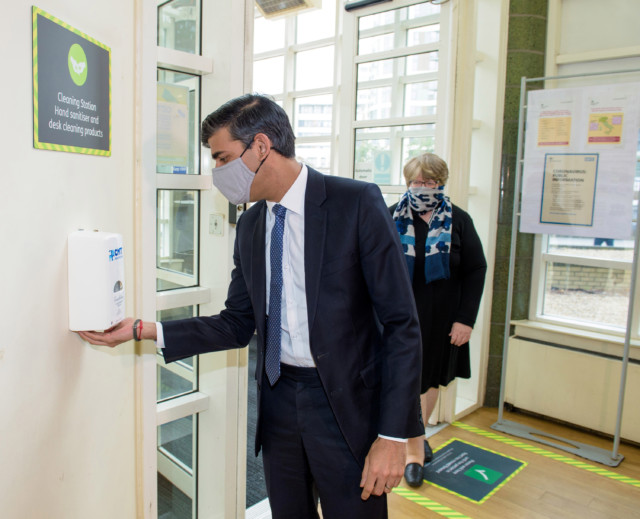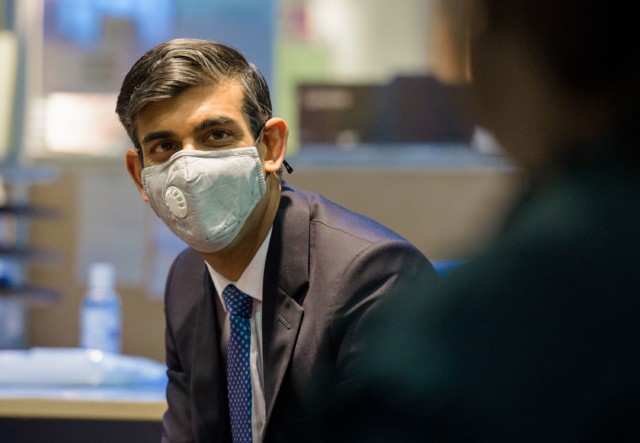RISHI Sunak has been criticised for wearing a face mask with a valve.
Medical experts said that style of covering is “worse than not wearing one at all” as potential infection can be exhaled in “a jet”.
The Chancellor wore a grey filter mask on a visit to a Jobcentre and a Pret a Manger this week.
This style of mask filters air on the way in but does not filter on the way out, with many experts urging people not to wear them.
Oxford University medical professor Trisha Greenhalgh tweeted they can “make the exhalation into a jet”.
She wrote “not that one Rishi. One without a valve. Way to go”, before correcting someone who wrote it was better than wearing nothing.
The European Centres for Disease Prevention and Control (ECDC) has urged people not to use valved masks, and some US cities have banned them entirely.
Earlier this month Dr Bharat Pankhania, senior clinical lecturer at the University of Exeter Medical School said vales lead to a “high velocity flow of air from the mouth out through the valve which could create a plume of infection”.
And former Tory MP Rory Stewart said: “A little guidance maybe [sic] needed on mask types – the key point of masks is to protect OTHERS from your own breathing.”
After flip flopping on the issue, the Government announced this week face masks must be worn in shops from July 24.
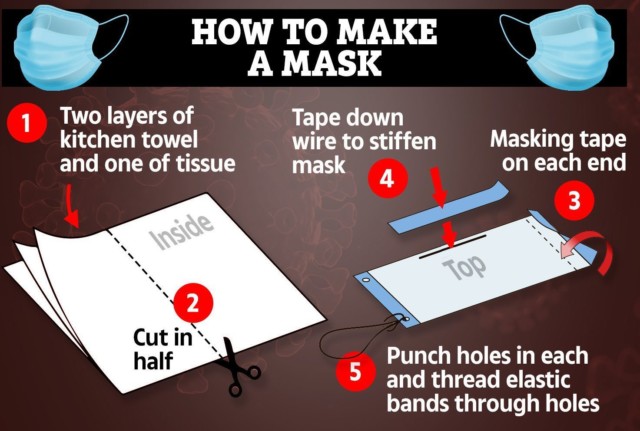
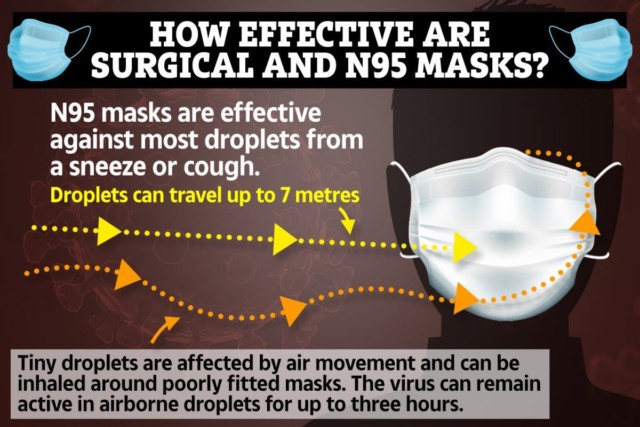
Anyone refusing will be fined up to £100 as Boris Johnson looks to prevent a second coronavirus wave as lockdown restrictions are eased.
The new Covid-19 rule comes after ministers were criticised for contradicting each other on the need for masks.
Homemade face masks can stop the spread of deadly coronavirus – but can also generate “intense backward jets” and must include three layers, experts say.
Researchers from the University of Edinburgh put seven types of Covid-19 face masks to the test, including surgical masks, respirators, lightweight and heavy-duty face shields, and handmade masks.
They found that only masks that form a tight seal with the face were able stop the escape of virus-laden fluid particles.
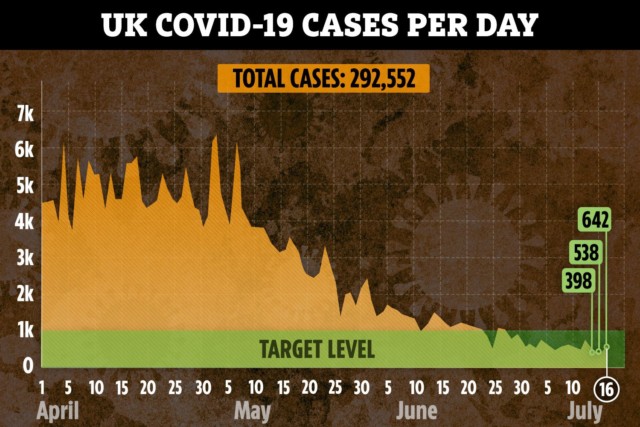
Dr Ignazio Maria Viola, who headed-up the study, told Sky News that he had “generally been impressed by the effectiveness of all the face coverings we tested”.
He said: “Firstly, you need to have multiple layers to make it effective, and second it is important to seal all gaps (hence it should be tightish) otherwise air will be projected at high speed in directions that we are not aware of and that we cannot control.
“I also guess that it should be washed after every use.”
Boris Johnson said masks should be worn in enclosed spaces where social distancing isn’t possible or where you may come into contact with people from outside of your household.
It includes public transport and in some shops, the Prime Minister’s 50-page roadmap to get the UK out of lockdown revealed.
The Department of Health said that after considering the latest scientific advice from Sage, face coverings can help reduce the spread of Covid-19.
The guidelines state that children under the age of two should not wear masks, nor should anyone who may find it difficult to manage them safely. This includes primary age children and those with respiratory conditions.
The Government also warned that for face coverings to be effective, people must wash their hands before putting them on and taking them off.
Masks aren’t necessary if you’re outside, while exercising, at schools or in offices.
